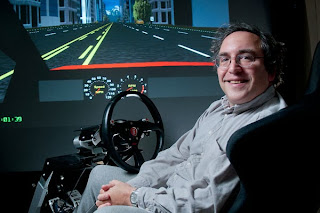The Teaching Experience

Education is: everything. Anything known must be learned, though sometimes this basic tenet is forgotten. The power any one person may have to create change stems directly from their knowledge, which acts as a limitation for those without it and a freedom for those who do have a larger store of knowledge. The greatest need for education, therefore, lies where there is the greatest need for change. In New York City, the low-income neighborhoods represent this "high-need." The cycle that keeps the children of low-income families from becoming high achievers or going to college is one that must stop. The only way out of this loop is through education.
I began tutoring Mathematics (Algebra, Geometry, and Calculus) at North Miami Beach High School to fellow students (a mix of middle and low-income groups) and continued my education at MIT to earn a B.Sc. in Mathematics with a minor in Spanish. Teaching undergraduate classes at MIT in Number Theory, instructing test preparation skills and High School level math for the GRE, SAT, and LSAT for the Princeton Review (including low-income students through special programs) and becoming an Adjunct Professor at the New College of California while matriculating for my MA in Poetics and MFA in Writing and Poetics placed me further down the path to education. On this path, I began to realize the need for well-trained teachers in every field of education, especially math and science. These two subjects were always the ones I heard students complain about. I've even had some adult students say, "It's all Greek to me." Some of the SAT students coming in were unfamiliar with the basic rules of algebra that belonged to skill sets two grades below their level. Helping them to understand was both difficult and delightful, once they discovered they could do math. They would find out that, indeed, it was not a foreign language to them. In San Francisco, I also volunteered as an Assistant Instructor for Lyric House, a program designed for the students at high-need elementary schools to help develop there creativity and communication skills by writing their own lyrics and performing their songs. In this way, with music, the young students were able to share their emotions and struggles with a greater audience in a therapeutic and educational way.
Lyric House was a wonderful experience because it brought the point home that sometimes an alternative approach is needed, something outside the textbook. One of the most necessary skills an educator can have is the ability to modify teaching methodologies to each specific student. Some students are more visual, some more kinesthetic, while some are most comfortable with audio stimulus. Realizing this and being able to use an individual student's optimal learning strategy is key to effective teaching. I am able to do this while working with a student on the individual level, such as private tutoring for the Princeton Review. If a student is not able to understand a basic mathematical concept from the textbook explanation it was my job to word it in such a way that they could grasp the concept, be it with a diagrammatic approach or with a story-like explanation. This is especially needed for such an apparently "abstract" subject, like math. How does one relate the beauty of math to a student? I am always thinking of better ways to approach education and would love the opportunity to learn more about what makes a teacher great.


Comments